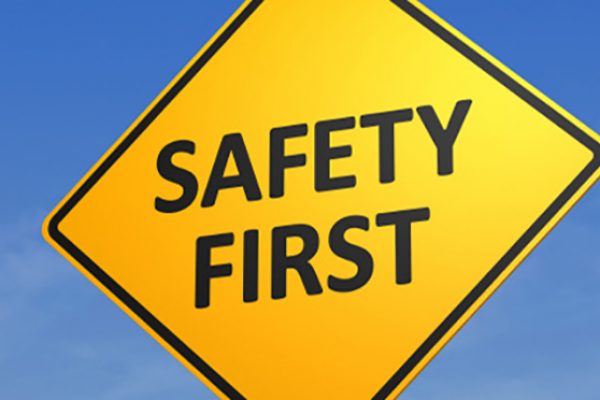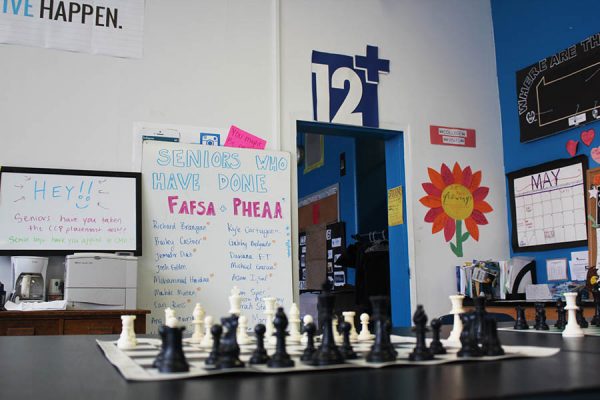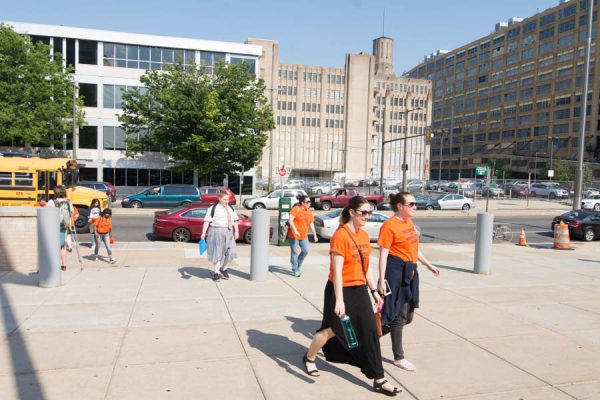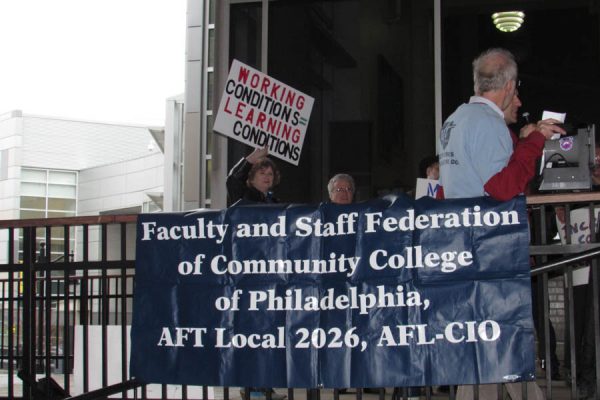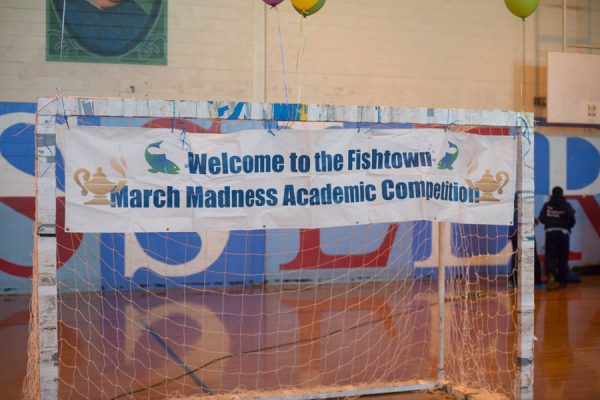Education: The Issue That Might Just Make of Break the Future of Philadelphia Part II
With a subpar education system in Philadelphia (outlined in Part I of this series in last week’s Spirit), the odds are stacked against some young families. They may not see the benefits of staying in Philadelphia much longer if the education crisis persists. This week, we look to see if charter school advances, which some view as positive and others see as controversial, are enough to keep young families with children in the city of Philadelphia and prevent them from moving to the suburbs in hopes of finding a more beneficial school system.
Two organizations, American Paradigm and String Theory Schools, believe they have an answer to part of the complex Philadelphia School District problem. Both organizations are hoping their applications to open a new charter school in Port Richmond, due to overcrowding in the public schools of the 19134 zip code, will be approved by the School Reform Commission (SRC).
In total, there have been two full applications for the one available charter in Port Richmond. American Paradigm and String Theory Schools are those applicants and both have held public meetings in the neighborhood. Their stated goal is to show the community what they plan on offering eligible children.
The School District of Philadelphia’s charter school office has told both applicants when their first hearing will be. American Paradigm’s first hearing was on December 12, 2014.
During the hearing each charter school applicant was allowed 15 minutes to formally present their application to the SRC, the organization that will oversee and make the decision on which application is approved. There was additional time allowed at the end of the hearing for members of the public to give their feedback in order to provide the SRC insight on how the community views the opening of a new school in their neighborhood.
Members of the public presented arguments both for and against which charter school application should receive approval. Over 40 charter school firms were present in hopes of convincing the SRC to allow their firm to start a new charter school at one of the few available spots throughout Philadelphia, according to Jim Stanton Director of Communications for American Paradigm Schools.
At the end of the day’s hearings, Stanton was not able to predict what direction the SRC might be leaning in their decision making process.
Both American Paradigm and String Theory Schools feel as though they are qualified to open the one new charter school in Port Richmond, each touting their success in other equally diverse areas of the city.
Stanton believes that American Paradigm’s track record of turning around the old John Paul Jones public school into the Memphis Street Academy, an effort led by the school’s CEO Dr. Christine Borelli, shows they have merit based credentials to open another school in Port Richmond.
“We are a renaissance charter school,” Borelli said. “Before we took over we were the bottom five percent of schools in the state, and we were [recently] recognized by The Philadelphia Inquirer as making the most improvement. Now that doesn’t mean now that our scores are really high now, that just means that we hit the improvement and the growth targets that we needed to hit.”
Borelli added: “To take students who were at nine percent student proficiency and to say at the end of this year they will be 80 percent– not a chance, you are setting yourself up to fail. But they can’t continue to stay at nine percent, so we went from nine percent to 18 percent student proficiency.
Same thing in reading, we went from 14 percent to 25 percent. We made sure kids who were below basic standards moved up from below basic.”
American Paradigm’s past success of obtaining and starting the Memphis Street Academy was done by competing against other educational management organizations. Prior to the charter take over and turn around, John Paul Jones Middle School was ranked one of the worst in the city, earning the nickname “Jones Jail.”
Jones Middle School enrolled students from the center of an impoverished neighborhood with a recorded history of injection drug users, street prostitution and high gun violence rates. The children attending Jones were subjected to heavy security and mandatory metal detecting scanners. All the school windows were protected with metal grating and the computer room was guarded by thick iron prison bars.
By the end of the first year that American Paradigm had taken over the old Jones school, the number of serious incidents decreased by 90 percent, with drug, weapons, assault and rape cases going from 138 total incidents for the previous year, before the charter take over, to 15 after the charter’s first year.
According to Stanton, this statistic is only one of the reasons that make American Paradigm a great fit for the open charter school bid available in Port Richmond.
“It was a challenge. It was a failing school, we took it over, turned it around and we are making it a success,” Stanton said. “So based on our experience with the Memphis Street Academy, we are familiar with the neighborhood, we are familiar with the community and we are successful at turning around failing schools, as well as opening new charter schools and having them be successful.”
String Theory Schools are also looking to obtain the new charter that is up for grabs in Port Richmond and look to fill it with one of their own schools. String Theory Schools traditionally focuses on educating kids in the areas of the arts but stresses they provide a compressive and holistic education that offers opportunities in the areas of science, technology, engineering, arts and math (STEAM). Currently, String Theory Schools has four campuses as part of two main programs in Philadelphia– The Performing Arts Charter School offers grades K-10, and the String Theory School for the Arts & Sciences grades K-8.
“What we hope to do in the Port Richmond area is to provide a school with more seats with high academic standards,” said Mary D’Anella, spokeswoman for String Theory Schools. “Public schools are closing and schools in general are too in some cases, so we are looking to provide an option”
To D’Anella’s point, some schools are in fact closing but the sustainability of the charter school option for parents has recently been called into question with the sudden closure of both Walter D. Palmer Leadership Partners Charter School campuses in Northern Liberties and Frankford over winter break due to financial issues.
The charter school had its budgets slashed by the district this year for failing to make its payments required to the state teachers’ pension program. Additionally the school is still paying off a $1.5 million court judgment owed to the district for collecting money for students it was not authorized to enroll. The court stated that the school enrolled 1,300 students, nearly twice the amount allowed in its charter agreement with the district, limited at a maximum of 675 students.
School district officials place the blame squarely and in full on this particular charter school for the closure that came about, something partly refuted in the press release put forth by those in charge of the Leadership Academy charter schools.
“It was the SRC and [Philadelphia School District Superintendent] Dr. Hite’s intentions to continue to deduct our school’s funding each month until they forced the school with only the option to close.” said Dr. Walter D. Palmer in the press release.
The press release statement adds:
“We asked for a meeting in hopes that we could have met before the Thanksgiving and winter holidays to address the School District of Philadelphia’s intentions. Dr. Hite, to date, has not responded to my written request to meet with the Leadership family and community.”
Even with other charter schools closing, Jurate Krokys, CEO of American Paradigm Schools, notes the success rate of their charter schools in Philadelphia, based on a number of metrics.
Like D’Anella of String Theory Schools, she agrees that charter schools provide an important option for choice to all parents who seek it.
“It’s important to have options for parents whose first and most important priority is that, one: their kids are safe, and second: their kids have educational opportunities,” said Krokys.
“Philadelphia has to make important decisions. We feel that we are a school option that can provide opportunities for students.”
Theresa Schleinkofer, a grandmother of two children enrolled at the String Theory Academy charter school, conjectures that charters can provide an important option for parents. Additionally she feels the time is now for a charter school to start in her neighborhood.
“I think it’s about time that Port Richmond had a charter school because there are none in our area right now”, said Schleinkofer. “Philadelphia schools are not good anymore, honestly.”
While many traditional Philadelphia public schools continue to remain in a state of decay, charter schools may be the only viable option for some parents today. Schleinkofer says this is due to private schools continuing to become more expensive and out of reach for most families and Catholic schools closing in some parts of the city.
City Controller Alan Butkovitz is quite weary of jumping to this conclusion though and does not believe that charter schools should be the only answer to fix a dysfunctional education system in Philadelphia.
“The answer can’t be that we are going to have an escape pod, and within that escape pod (charter schools) we continue to eliminate students that are problem students and we do all of these other things, and say look how good our escape pod is doing,” said Butkovitz. “[Charter schools] have to look at the overall conditions for all the kids that are educated in Philadelphia schools. And all the people have to look at everybody as being part of that community.”
Another area where Butkovitz has been staunchly critical of charters schools is regarding the current funding formula for tuition reimbursements and special education, which according to his report published back in October has led to the charter sector accumulating a $117 million balance. While the charter sector’s balance was in the black in 2013, the Philadelphia School District was $68 million in arrears at the close of the same year, the report states.
But Gerald Santilli, a principal of the Santilli and Thomson organization that works as business service provider for 17 charter schools in Philadelphia, believes Butkovitz is not taking all factors into account when evaluating charter schools in this manner. Prior to 1999, Santilli was the Chief Financial Officer for The School District of Philadelphia. As he understands them, the figures show that charter schools in Philadelphia receive only about 75 percent of the funding that traditional public schools receive.
“Every charter school needs money to function and when you take $117 million dollars (the number Butkovitz is claiming charter schools obtained in their positive fund balance, based on the current funding formula) and divide it by 86 charters, the amount of charter schools in Philadelphia, that’s less than $2 million dollars per charter,” said Santilli. “You have to be able to pay your bills.”
Cost and funding are noted by many as primary concerns regarding the influx of charter schools nationwide. Funding strategies for charter schools around the country vary from state to state. In Pennsylvania, charter schools are funded by the state and local governments, which allocate funding to each school district on the basis of a formula directly related to each school’s student enrollment.
Like traditional public schools, educational funding for charter students in Pennsylvania comes primarily from the student’s district of origin supported by property tax revenue paid by taxpayers in the town, city or municipality.
Government officials typically regulate charter schools by way of having the group or organization running the school governed under a legislative contract (or charter), signed in agreement and approval by a state, or local government jurisdiction. In Philadelphia, that governing body is the SRC, specifically the Charter School Oversight Office.
Charter schools are exempt from certain state or local rules and regulations in return for more autonomy and flexibility to function as those directly in control of the charter school see fit.
In Philadelphia if any number of students decide to leave the regular public school setting for a charter school, the money allocated for that student by the district they live in follows the student to the charter school, continuing to fund their education.
Recently charter schools have come under fire by many of their opponents for allegedly cherry picking their student bodies. The factual basis behind either claim remains unclear at this time, but what is known is that charter schools have in fact experienced changes in their demographic makeup.
From the school year 1999–2000 to 2011–2012 the percentage of charter school students nationally who were Hispanic and Asian/Pacific Islander increased from 20 percent to 28 percent and from three percent to four percent, respectively. In contrast, the percentage of charter school students who were white decreased from 42 to 36 percent, and the percentages who were Black and American Indian/Alaska Native decreased as well.
The percentage of students attending high-poverty charter schools—schools defined by more than 75 percent of the students qualifying for free or reduced-price lunch (FRPL) under the National School Lunch Program (NSLP)— increased from 14 percent in school year 1999–2000 to 31 percent in school year 2011–12. Over the same period, the percentages of students attending charter schools with lower percentages of students qualifying for FRPL decreased.
Whether or not charter schools have more economically disadvantaged children than traditional public schools is an area with somewhat conflicting research data. As articulated in a study conducted by the Pennsylvania School Board Association’s Education Research and Policy Center, charter school student populations initially seemed to be serving higher numbers of economically disadvantaged students, but in recent years those previous percentages have declined to be relatively similar with the state average.
There are other areas where charter schools and public schools starkly differ in their performance ratings. Stanford University issued a Report titled “Multiple Choice: Charter School Performance in 16 States,” including Pennsylvania. This was the first national, peer-reviewed attempt to accurately and adequately portray a valid comparison between traditional public school and publicly funded charter school performance. The report found that students from charter schools were not performing as well as their peers in traditional public schools, but that poor performance was not universal for all their charter school students.
The study also drew attention to the first-year dip associated in other research that shows student performance for incoming charter students seems to be followed by significant improvement over time.
The same study called attention to concerns articulated by both advocates and opponents of charter schools, as well as the United States Department of Education, regarding the quality of charter schools.
Dr. Margaret Raymond, director of the study at Stanford University, names “quality [as] the most pressing problem that the charter school movement faces… If the supporters of charter schools fail to address the quality challenge, they run the risk of having it addressed for them.”


